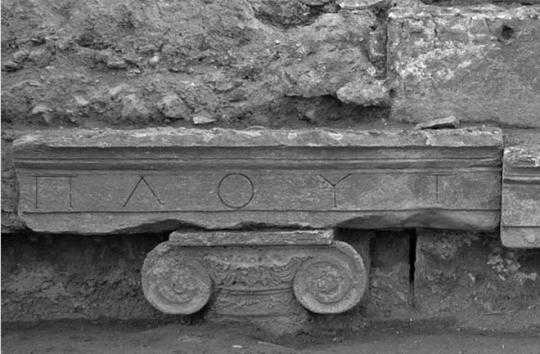Kate Seamons, Newser 12:56p.m. EDT April 1, 2013
“Any animal that passes inside meets instant death.”
— Ancient Greek geographer Strabo

As far as archaeological discoveries go, it’s a darker one: Pluto’s Gate — aka, the fabled gate to the underworld — has reportedly been unearthed in Turkey.
The team behind the dig made the announcement last month, and ANSA and Discovery report on the finding and the Greco-Roman mythology behind the portal: Cicero and Greek geographer Strabo made reference to the entryway to Hell in their writings, and placed it in the ancient city of Hierapolis.
NEWSER: The world’s least visited country is …
As Strabo explained of the cave opening, which spewed noxious vapors, “Any animal that passes inside meets instant death. I threw in sparrows and they immediately breathed their last and fell.”
Italian archaeologist Francesco D’Andria has been examining Hierapolis for years (he formerly claimed he found one of the 12 apostles’ tombs there). This time around, he explains his team found the portal “by reconstructing the route of a thermal spring” to the cave; he was also able to identify the ruins of a temple, pool, and steps — from which pagan pilgrims would watch sacred rites performed at the portal’s opening — referenced in descriptions of the cave.
“We could see the cave’s lethal properties during the excavation,” he says. “Several birds died as they tried to get close to the warm opening, instantly killed by the carbon dioxide fumes.”
via ‘Gate to Hell’ discovered in Turkey.